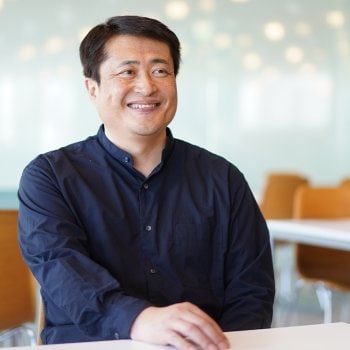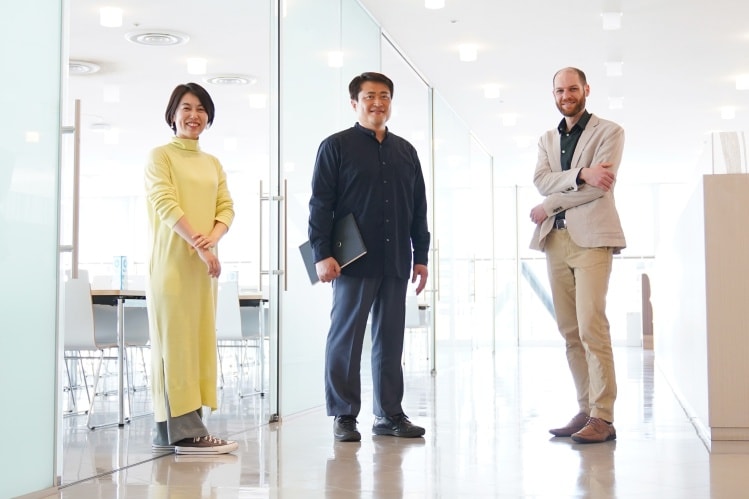PEOPLE
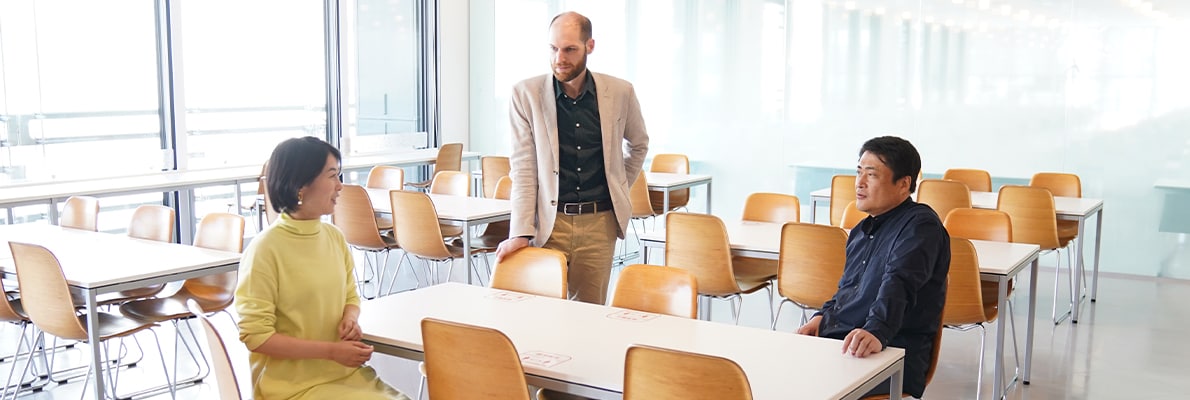

Recognizing Diversity Issues from the Employee's Perspective and
Creating an Environment in which All Employees Can Fulfill Their Potential
DIVI@Sony* is a Sony Group-wide project under the direct control of the President and CEO. It promotes diversity and inclusion (D&I) by identifying issues that employees experience from their own perspective and work to resolve on their own initiative.
We spoke with representatives from each team about their current activities on the themes of childcare, nursing care, and global support for foreign employees in Japan.
- *DIVI@Sony is a D&I project launched in 2005 under the direct control of the President and CEO. Employees in Japan, including those at Group companies, engage in theme-based activities. Initially, the project involved female members, but over time they were joined by male employees and foreign nationals, paving the way for the activities we see today. The project uses a candidate system whereby employees who want to become members volunteer for two years. They then make recommendations to top management and Human Resource department from their standpoint as employees.
 Tomo Kimura
Tomo KimuraSony Semiconductor Solutions Corporation Planning & Control Division Corporate Strategy Dept. Corporate Communication Sec. (Childcare Team)
 Yuuji Tabuchi
Yuuji TabuchiSony Corporation Imaging Products & Solutions Business Group.System Software Technology Center Mobile Product Design Div.Camera Design Dept.Camera Module Development Sec. (Nursing Care Team)
 Michael Hentschel
Michael HentschelSony Group Corporation R&D Center(Research and Development) Fundamental Tech. Research & Dev. Field Tokyo Laboratory 21Sec.4 (Global Team)
Using Measures Aimed at A Wide Range of Targets to Foster the Employee Mindset
Kimura: The Childcare Team aims to create a workplace where people can work with mutual respect whether they are bringing up children or not. Key activities include regular Fathers' Parenting Leave Seminars and talks by male celebrities who have taken childcare leave. In May 2020, when schools were closed due to the spread of COVID-19 in Japan, we held an online social event for telecommuting employees who were raising children. In October, we organized a seminar to discuss truancy and bullying among children. We have also launched new initiatives for younger employees, such as events to discuss about careers with partners. We work with a wide range of target groups, including employees who are already raising children, and employees who will face the challenge of raising children from now on. I was one of several leaders for the first half of fiscal 2020. I reported on activities and made recommendations to President and CEO Yoshida and other top Corporate executives and organized regular meetings. The leader does not steer all initiatives. Instead, individual members often suggest what they want to do, and we decide who will lead each event.
Tabuchi: The purpose of the Nursing Care Team is to encourage employees to think about nursing care as a personal, close-to-home matter in preparation for when they may suddenly face the issue in the future. It aims not only those who are currently involved in nursing care, but also those who may be involved in the future, think about nursing care from now on. Actions include providing information on balancing work and nursing care, and arranging film screenings, lectures, and workshops. We also hold round-table sessions to make it easier for employees involved in nursing care to enlist supporters. Another activity that cuts across the Childcare, Nursing Care, and Global teams is a D&I awareness survey for all Group employees in Japan, and the data obtained from the awareness survey questionnaire is fed back to DIVI@Sony for regular activity reports.
Michael: I am currently the leader of the Global Team, which works to create a workplace environment that is comfortable for non-Japanese employees and to foster a global mindset among employees. I am primarily involved in the following four programs: (1) General workshops support the lives of international employees in Japan by providing information about the social insurance system in Japan. (2) E-learning designed to enhance Japanese employees' basic knowledge of different cultures and help them solve international communication problems. (3) Intercultural communications workshops. To facilitate the dialog between international and Japanese employees by covering examples of customs that are commonplace in Japan but can create mixed feelings among foreigners. (4) Role model interviews with non-Japanese employees to describe the development of their careers so far and provide advice for other international employees.The interview articles are posted in the DIVI@Sony internal website and in addition we also host a panel discussion. We also host panel discussions involving the participants who appear in these interviews.
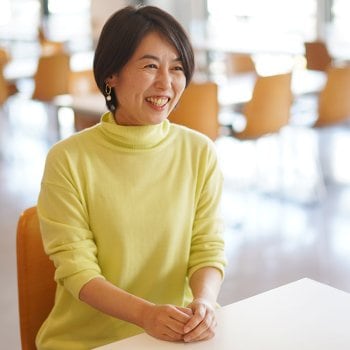
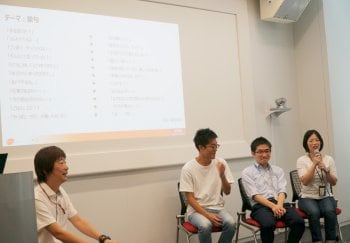 An expanded version of the Fathers' Parenting Leave Seminar hosted by the Childcare Team hosted during Diversity Week in September 2019
An expanded version of the Fathers' Parenting Leave Seminar hosted by the Childcare Team hosted during Diversity Week in September 2019Becoming a Member to Solve a Problem I've Always Felt
Tabuchi: I applied to become a member of DIVI@Sony because I watched my mother struggle for years to care for my father. I wanted to alleviate the hardships faced by people involved in caregiving. My father has since passed away and my elderly mother lives by herself some distance away. I feel I should gain knowledge of nursing care to prepare for the possibility that my mother will eventually need it.
I feel like my world has been steadily expanding since I proactively stepped forward as a member of DIVI@Sony. As I am mostly engaged in teleworking, I don't know how much of an impact my activities have on the people around me. However, I'm constantly considering how I can spread the knowledge I gain from my activities.
Michael: When I talked to some of the teachers at the Japanese language class that I previously attended, I realized that many Japanese people are unaware of the concerns of foreign residents in Japan. This led me to look for opportunities to participate in activities that would help Japanese and foreigners understand each other better. After I joined Sony, I took part in the "Sony Happy Hour" networking event for international employees organized by DIVI@Sony. I realized this was what I was looking for and decided to become a member.
I work in R&D where one person is in charge of one project, but the activities of DIVI@Sony involve a team, making me realize the importance of teamwork. I also had no experience of a leadership position in my normal work, but as a team leader I have now learned how to accept members' opinions, convey them to others and move ahead smoothly, all of which is useful in my daily work.
Kimura: For a long time, I have wanted to participate in various in-house training programs and seminars to gain knowledge that is not readily available in my usual work but will be useful for my future career development. Since most training programs and seminars are held after work, however, I have found it difficult to participate because I am juggling work with childcare. My main motivation for joining DIVI@Sony was to plan training programs and seminars that people facing time constraints could attend, thus creating equal opportunities for all employees to learn and become more aware.
Initially, I was not particularly interested in whether male employees took childcare leave, but I have learned that taking such leave is the first step towards participation in childcare. I also think I have changed a lot because I am now able to share my thoughts with others when asked. The activities of DIVI@Sony have provided me with a chance to think more deeply about balancing childcare and work.
Michael: One thing I felt very glad about after becoming a DIVI@Sony member was the feeling to help a lot of people that we get from the very positive feedback on the events we organized. Another benefit has been the debriefing sessions with top management. These give ordinary employees like me the opportunity to hold direct discussions with senior management, an experience that we rarely have in our daily work.
Kimura: While there are many good things about becoming a member, the best thing has been working with members of departments with whom I rarely have the chance to interact. I have learned a lot about different ways of working that I have been able to incorporate into my own work.
Tabuchi: Due to the spread of COVID-19, we have been working remotely without real face-to-face contact with our members. I was worried at first, but the team gradually came together, and I am delighted that we are making solid progress toward our goals. I get to interact with members outside of the Nursing Care Team, which stimulates me to build personal networks beyond those in my daily work.
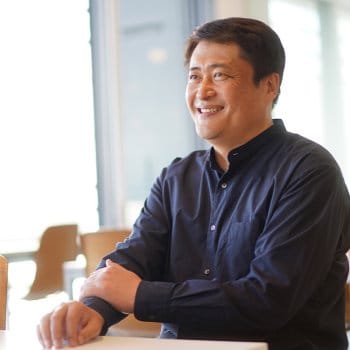
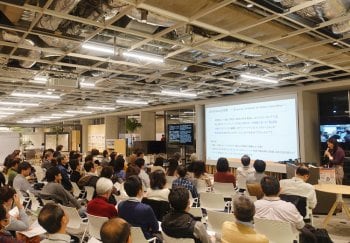 At the lecture following the screening of a documentary on nursing care held on January 30, 2020
At the lecture following the screening of a documentary on nursing care held on January 30, 2020Activities that Provide Learning, Awareness, and Valuable Experiences
Michael: If you look at the ratio of international employees at Sony, it's about 30% in Europe and more than 60% in the U.S., while in Japan it's much lower at 8-10%.In light of this situation, Japanese employees have commented in awareness surveys that there were few opportunities to communicate with foreign employees, that they would like to know more about the problems facing international employees working in Japan, and that the ratio of international employees working at Sony in Japan should be increased. I get the feeling that awareness of the issues is increasing among Japanese employees because our activities are gradually penetrating the workplace. As a result of panel discussions among non-Japanese employees and workshops on cross-cultural communications, many people have commented that they want more opportunities like this. Positive feedback is the driving force behind our subsequent activities.
Kimura: DIVI@Sony is a bottom-up activity, but we promote D&I from the bottom and the top through regular reports on opinions and proposals to top management, and requests for messages from them. At a talk event held last September, top management serving as advisors to DIVI@Sony shared their thoughts on male employees taking childcare leave. We are working to create a workplace where everyone who wants to take childcare leave can do so. I believe we will be able to deepen understanding of D&I in the workplace by demonstrating our commitment to promoting D&I not only at the grassroots level but also as a corporate group. I think the program is also helping to alleviate the concerns of male employees who feel unable to take childcare leave because they are worried about gaining the understanding of their workplace colleagues and the impact on their careers.
Tabuchi: All our programs are online, but about 750 people attended the screening of a film on caregiving and about 230 people attended a lecture about the film. The number of participants in our weekly round-table sessions on nursing care has increased since the film screening and lecture, suggesting growing employee curiosity and interest in caregiving. One of our most recent initiatives that left a lasting impression was an Ideathon on how to use technology to resolve nursing care issues. We were able to identify issues together, share solutions from a variety of perspectives, and become acquainted with various ideas.
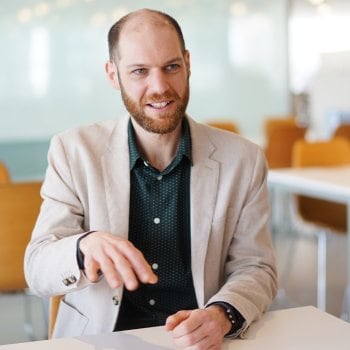
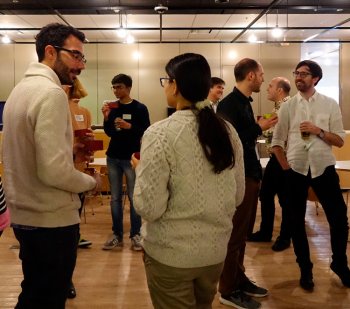 "Sony Happy Hour", a networking event for non-Japanese employees
"Sony Happy Hour", a networking event for non-Japanese employees Bottom-up and Top-down Approaches
Kimura: Broadening understanding of D&I from the employee perspective is valuable because it makes it easier to recognize the issues. For example, people who have child raising experience can best understand the issues faced by employees raising children, while younger members can best understand the problems facing younger employees. Recognizing the real concerns and troubles of the target group enables us to propose measures that better suit employees. The difficulty lies in the gap between the perspectives of top management and us. Our proposals to top management are based on employee opinions obtained through bottom-up activities, but top management often thinks of diversity in terms of higher-level concepts that are distant from minor day-to-day concerns. This makes it difficult to propose concrete measures to connect the two or act.
Tabuchi: It is important to promote top-down activities as well as activities from the employees' perspective. I want to create a virtuous spiral that fosters the mindset of employees by proposing to top management the opinions of people in the workplace and the insights I have gained through firsthand experience. The difficulty in working from an employee's perspective is how smoothly we can support employees who are normally too busy with their work to pay attention to DIVI@Sony and other activities when nursing care suddenly becomes a personal matter. We can provide such people calm and practical advice on the way forward.
Michael: I also think that it is important to take both bottom-up and top-down actions. Some time ago, a workshop run by the Global Team on a trial-and-error basis was adopted as a Sony Group Human Resource policy. One of the advantages of bottom-up activities is that we can try new approaches.

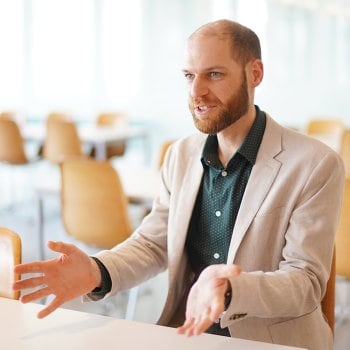
Promoting D&I throughout the Group to Create A Comfortable Working Environment for Everyone
Tabuchi: I like to keep abreast of what is happening with D&I at other companies and around the world, and want to contribute to the company's efforts to achieve diversity as one of its core values from the standpoint of the Nursing Care Team. Also, we know from survey results that awareness of DIVI@Sony activities among younger employees is low, so we intend to engage in activities to remedy that. I hope that all of these activities will ultimately increase corporate value.
Michael: My hope is that top management's understanding of workplace issues will be enhanced by presenting employee opinions gathered through DIVI@Sony activities. I would also be happy if we could trigger changes within the company by submitting proposals on necessary actions to top management.
Sony provides products and services to the entire world. Diversity among employees is essential for understanding our customers' diverse needs. I will be happy if DIVI@Sony activities promote understanding of D&I throughout the company and lead to greater diversity among employees.
Kimura: DIVI@Sony activities extend across Sony group companies in Japan , but the circumstances at individual companies vary. I think promotion of D&I would be more effective if groups of companies and individual organizations worked on their own themes in collaboration with DIVI@Sony. Furthermore, DIVI@Sony currently takes issues relating to childcare, nursing care and global employees as its primary themes, so others appear to perceive it as relevant only to those involved. We should be able to involve all employees in our activities if we expand the scope of our themes and activities so that people around those affected realize the problems impact them, too.
The environment at DIVI@Sony is such that we can propose plenty of measures to address issues that we feel are relevant to ourselves and implement them while cooperating with other members. I encourage employees to actively participate in improving their work environment and making it a more motivating place to work.
